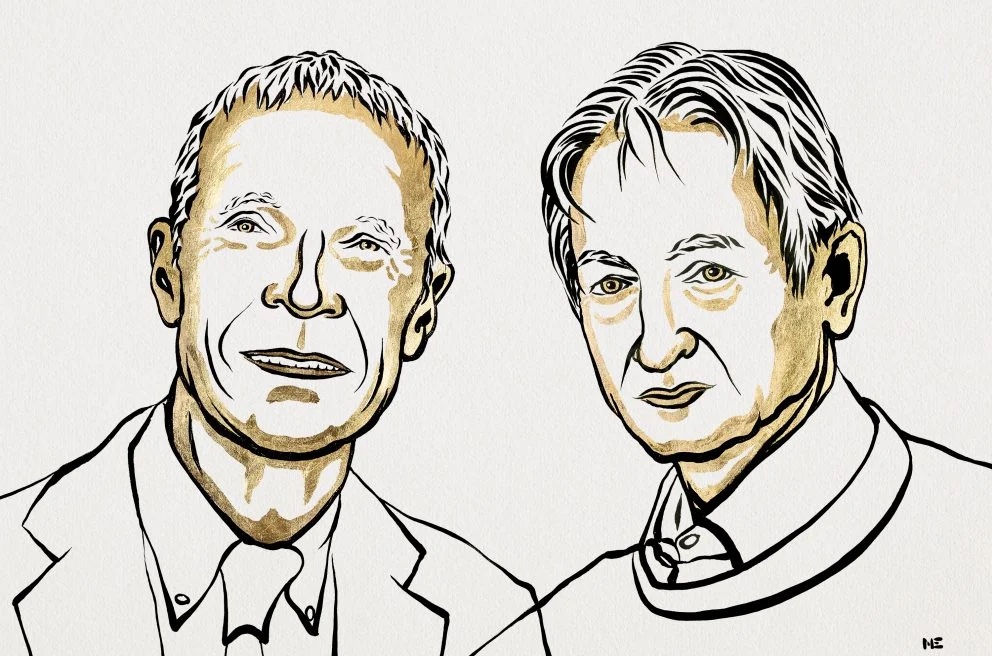Nobel Prize in Physics goes to two AI innovators
This year’s prize was awarded to John Hopfield and Geoffrey Hinton for machine learning discoveries
K.R. Callaway • October 8, 2024

John J. Hopfield and Geoffrey E. Hinton, the 2024 Nobel Prize in Physics laureates. [Credit: Niklas Elmehed © Nobel Prize Outreach
The 2024 Nobel Prize in Physics went to two scientists whose work with artificial neural networks laid the groundwork for artificial intelligence.
John Hopfield, professor emeritus of physics at Princeton University, and Geoffrey Hinton, professor emeritus of computer science at the University of Toronto, were jointly awarded this year’s prize.
“The laureates’ discoveries and inventions formed the building blocks of machine learning that can aid humans in making faster and more reliable decisions,” said Ellen Moons, one of three members of the Nobel Committee for Physics at the press conference.
The human brain is made up of a network of billions of neurons that work together to give us the unique ability to remember things and recognize patterns. This human ability led to an interest in creating machine networks that could similarly recognize patterns in datasets.
“The breakthrough came in 1982, when John Hopfield presented a dynamic network that could store and retrieve associative memories,” said Anders Irbäck, another member of the Nobel Committee for Physics.
This dynamic network, called the Hopfield network, could be shown an unfamiliar image and match it to whichever saved image looks most like it.
Geoffrey Hinton built upon the Hopfield network for his own breakthrough in machine learning — the Boltzmann machine. This machine can learn to recognize characteristics about different types of data it is shown. Once it has established a pattern in the data, it can generate new data that follows the pattern, according to the Nobel Prize Committee.
Hopfield and Hinton’s innovations in machine learning set the stage for the generative AI models that are becoming increasingly commonplace today.
Hinton, who told the New York Times he has come to regret some aspects of his life’s work, said he was “flabbergasted” when he received the Nobel Committee’s call this morning. During the press conference, Hinton spoke about the impact he predicts AI will have in the future.
“I think it will have a huge influence,” Hinton said. “It’ll be comparable with the Industrial Revolution, but instead of exceeding people in physical strength, it’s going to exceed people in intellectual ability.”
Hinton also said that he thinks the future with AI will be “wonderful in many respects.” But, he warned that there are a number of negative consequences people should be worried about — particularly AI “getting out of control.”
Responding to a journalist’s question about the New York Times article in which he said he regrets his work in AI, Hinton clarified that there are two types of regret, in his view.
“There’s regret where you feel guilty because you did something you knew you shouldn’t have done, and then there’s regret where you did something that you would do again in the same circumstances, but it may in the end not turn out well,” Hinton said. “That second kind of regret, I have.”
Nobel Prize Committee members also mentioned society’s obligation to balance the positive and negative effects of AI.
“Collectively, humans carry the responsibility for using this new technology in a safe and ethical way for the greatest benefits of humankind,” Moons said.